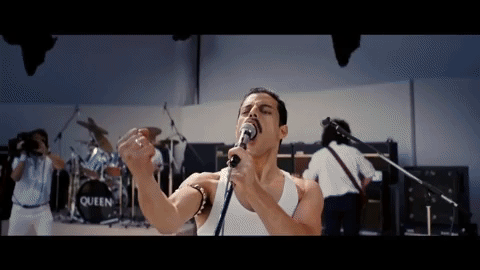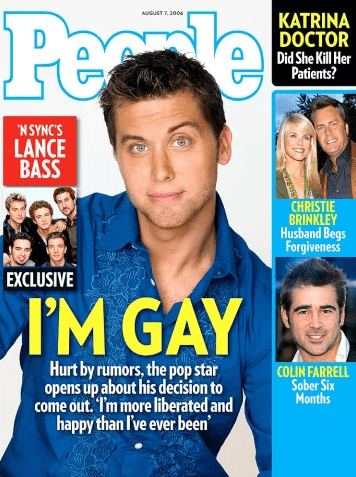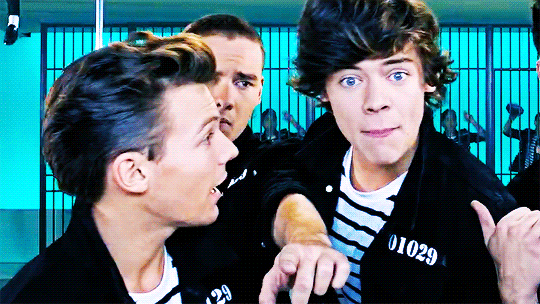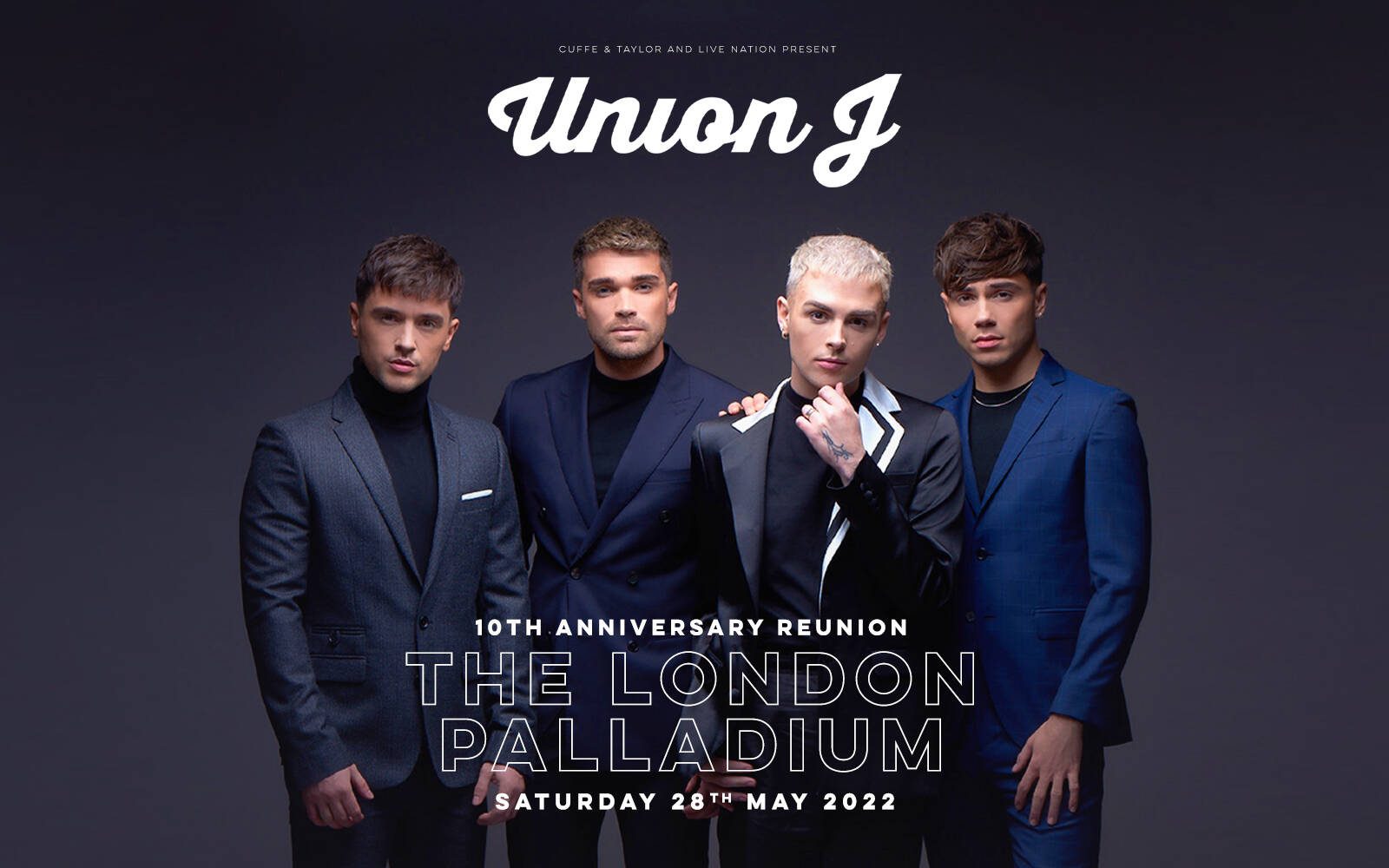Fans have shifted away from the straight and narrow, so for boy bands to survive in today’s social climate they need to do the same.
It’s no secret that in recent years, the music industry has experienced an LGBTQ+ awakening. Openly queer artists like Lil Nas X and Brandi Carlisle rule the Billboard charts, living proof that superstars don’t need to sacrifice their authenticity to be successful. While LGBTQ+ musicians have been around for as long as meaty guitar riffs or pithy pop fills have been played, historically most remained closeted because mere speculation of being gay could result in lost labels and dropped record deals.
https://www.instagram.com/p/CZrv_aEIJDP/
Even now, mainstream media continues to struggle with – and sanitize – the queer experience. In the 2018 biopic Bohemian Rhapsody, Queen’s front man and confirmed bisexual Freddie Mercury avoided intimacy with men the entirety of the film, and yet still was depicted as dying from AIDS in the dramatic, sweeping finale. His queerness was reduced to a plot device – in his own movie!

Still, LGBTQ+ representation in the music industry is the best it’s ever been. As lesbian pop culture prophet Jill Gutowitz says:
“Today, artists who are loudly and proudly queer know that there are labels who are not just willing to elevate them, but also whose business model is to appeal to the queerest generation in history.”
While queerness was once viewed as a disadvantage and something to hide, queer musicians now have their own market who both accept and embrace this part of them.

Presently LGBTQ+ artists reflect many genders and orientations, many backgrounds and ethnicities, yet one genre remains largely untapped: boy bands. That’s not to say that queer boy band members don’t exist, but rather that they are few and far between and typically don’t come out until after their respective bands exit the limelight (a la Lance Bass of *NSYNC).
Why are boy bands so straight? For a music genre that is constantly taunted as gay, the lack of queer representation is both confounding and indicative of heteronormativity’s role in popular culture. Historically, boy bands have filled traditional gender roles, using their songs and stage presence to woo young women. But they need not woo anymore. Younger generations now question chivalry, viewing it as antiquated and sexist, and prefer to maintain their own agency across relationships. Fans are diverse in gender and identity and frankly want more than just men: boy bands have LGBTQ+ fans, too.
And like any other fans, queer ones want to see themselves represented in the media that they consume. So when the subject of their fandom is heterosexual, they’re forced to take matters into their own hands and project their own meaning onto the artists and bands that they like. This is how the infamous Larry Stylinson relationship came to be, in which a niche subset of One Direction fandom asserted that members Harry Styles and Louis Tomlinson were in a secret, romantic relationship. Any instance of the two boys exchanging eye contact or exhibiting physical contact was promptly filed away as evidence, to be brandished at a moment’s notice when provoked by non-believers. The conspiracy became so well known that the One Direction management team were made aware of it, to the point where they would physically separate Harry and Louis during interviews to avoid any additional speculation.

There’s a thin line between idealizing and invading pop culture icons’ personal lives, but regardless of where Larry Stylinson fans landed the intent behind their determination was simple: they were making up for what the band lacked. Because there wasn’t a queer boy band space for them to pour their support into, they had to create their own alternate reality. With over 20% of today’s youth identifying as LGBTQ+, having a queer boy band that fans can relate to is no longer just a want, but a need.
Fortunately, steps are being taken in the right direction. BROCKHAMPTON, an eight-person boy band with an openly gay front man, went on hiatus in early 2021, but another contender has reemerged in the limelight: British four-piece Union J.

Union J, like most boy bands, was created artificially at the hands of a manager (X-Factor judge Louis Walsh). Jaymi, Josh, and JJ auditioned as a trio on the X-Factor in 2018 and after initially being eliminated, he decided to add George Shelley into the mix and give them another shot. The group achieved success both on the show and in the post-reality television world, even touted as the next One Direction, but after a few years together things fell apart when George announced he was quitting the band. This came as a shock to fellow band members and fans alike.
It was years later that George opened up about his departure, attributing a large part of it to the stress that he experienced while being closeted in the public eye.
“I spent a lot of time hiding away my sexuality because I was in a boyband that were selling records to young teenage girls,” He confessed in BBC Three documentary Learning to Grieve. “They needed us to be a product for the girls… I didn’t want to jeopardize anything for the band by being gay.” Fellow bandmate Jaymi was openly queer, but George was concerned that his coming out would be too much for the fans and public alike to handle.

Like us mere mortals, the separated members of Union J reconnected over Zoom during the height of the COVID-19 pandemic, and it was then that they reconciled and decided to give the band another shot with an epic reunion show at the London Palladium in May 2022. In doing this, they became today’s only active boy band with openly queer members, and also the first boy band in all of history to boast not just one, but two queer members.
Maybe the world wasn’t ready for a half-queer boy band in 2016, but in 2022 we’re itching for exactly that kind of representation and more.
At the end of the day, boy bands don’t have to contain LGBTQ+ members to be interesting or successful (as demonstrated by the widespread success of the genre). Fans aren’t looking for either of those things; they’re simply looking for themselves. To them, it doesn’t matter how many graphic tees or hardcopy albums or VIP concert packages are sold, but rather what they feel when listening to the music and the boys and the world they’ve created. They want to feel like they belong.
The “Build It And They Will Come” formula once served boy bands well, but changing times challenge that very equation. The middle-aged, straight white men (see: Lou Pearlman or Simon Cowell) who have formed many a boy band no longer have an accurate pulse on what is trending, because it’s outside of the scope of what they inherently know: being straight and white. As such, they’ve lost control of the market that they used to puppeteer from up above, and it’s now the fans that will dictate exactly who and what they’ll be swooning over.
Fans have always been the backbone of the boy band genre, but for the first time they have complete control over the direction that the industry takes next – and I for one can’t wait to see what they do with it.
Editor’s Note; Sam Bellisimo is a guest contributor to Instinct Magazine


I would honestly think there would be at least one gay guy in any boy band given statistics.
Freddie Mercury was not bisexual. I could understand how you might think that if you only had a superficial knowledge of Freddie’s life. Someone might also get that impression if you were in the habit of believing known liars. If you know anything about Freddie you would know who I’m talking about (Barbara Valentin and Lesley-Ann Jones). It is well documented they both lied and exaggerated what they knew about Freddie. I am terribly disappointed that you would be so unprofessional even though this story was posted on the internet (where there is only a passing relationship to the truth) I would think you would at least attempt to get at the truth by getting information from people that knew Freddie for more than a short time (Peter Freestone his personal assistant, Peter Hince his roadie and Jim Hutton his final boyfriend for the last six years of Freddie’s life) and were well-inclined to either lie or exaggerate (Barbara and Lesley-Ann). I would say this is both lazy and irresponsible.
You should at least take enough pride in your work to do enough work to get to the truth instead of spreading lies because you are incompetent lack any real talent or integrity.